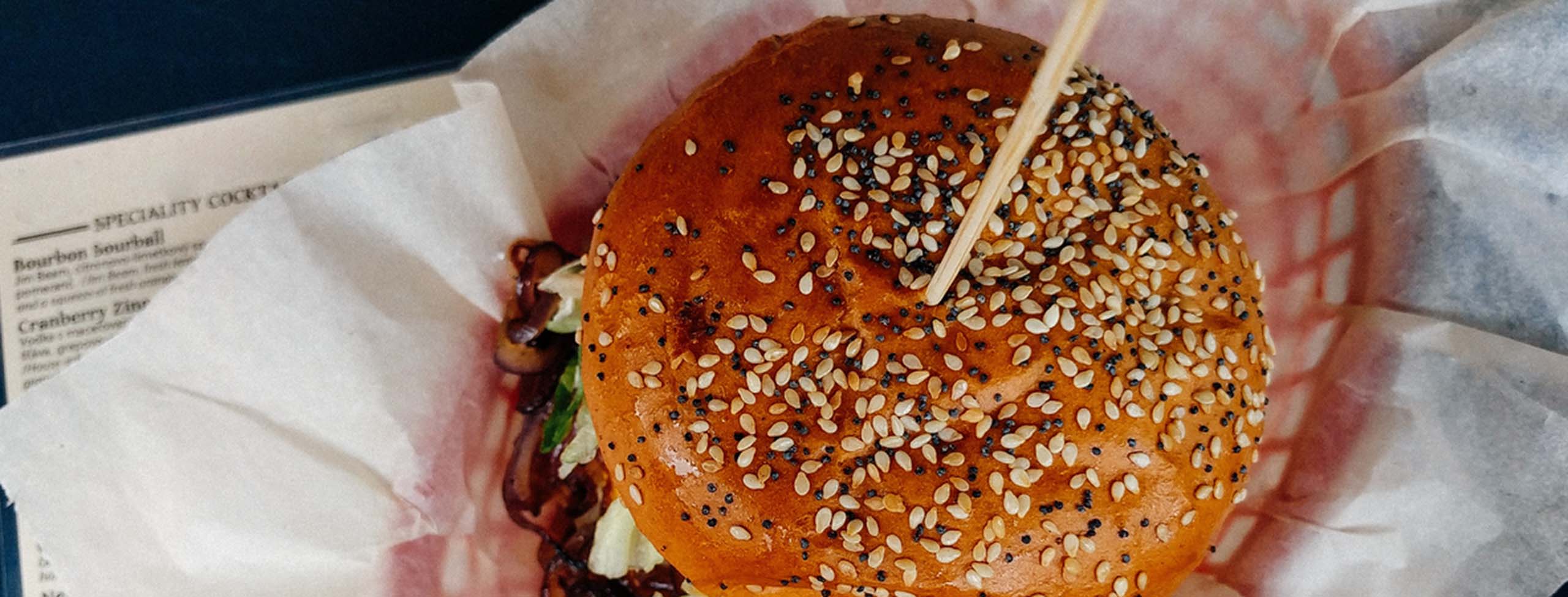
16 February 2024 • 10 minute read
Food and Beverage News and Trends - February 16, 2024
This regular publication by DLA Piper lawyers focuses on helping clients navigate the ever-changing business, legal, and regulatory landscape.
FDA expands cheese and dairy recall. On February 13, the FDA announced an expansion of a February 6 recall of cheeses and other dairy products for possible listeria contamination. While the initial recall covered cotija cheese, cremas, yogurt, and other products made by Rizo Lopez Foods, Inc., this latest expansion encompasses an array of prepared foods, such as dips, sandwiches, prepared enchiladas and burritos, salads and salad dressings, sold by numerous nationwide retailers. Some of the products have been sold without branding in taco kits, wraps, and meals. Rizo Lopez Foods has recalled all its current cheese and dairy products. To date, two deaths have been linked to this outbreak in the US.
CFIA food recalls. The Canadian Food Inspection Agency (CFIA) has announced recalls for a number of food products due to the possible presence of listeria or other contaminants. Products recalled due to risk of listeria include Bauman’s Country Meat Shop’s summer sausages, Rojo’s black bean 6 layer dip, and President’s Choice and Taylor Farms salad kits. (The latter recall is related to the US FDA recall of products from Rizo Lopez Foods). In addition, the CFIA issued a recall for Pinty’s fully cooked crispy chicken breasts, due to possible presence of metal pieces.
US: Strengthening Organic Enforcement Rule goes into effect in March. The Strengthening Organic Enforcement and the Organic Livestock and Poultry Standards Rule – broadly amending the Organic Foods Production Act of 1990 – goes into effect in March. The organic food business has grown to an $11 billion annual industry, with complicated supply chains; the new rule, with extensive updates to the USDA’s National Organic Program, sets out clearer standards for record-keeping and animal welfare that, USDA said, will combat fraud and support ongoing consumer confidence and trust in the USDA organic seal. The Organic Trade Association calls the new rule “a major win” for organic producers and consumers. Its CEO and executive director, Tom Chapman, stated, “Having clear, consistent and enforceable standards is paramount for the organic sector to maintain consumer trust, and to also ensure that farms and businesses of all sizes have a fair shot at competing in the marketplace by meeting a minimum set of requirements."
Canada issues import guidelines for meat products. Ensuring smooth importation of meat products into Canada requires strict adherence to updated guidelines. Since June 13, 2022, significant changes have been implemented, mandating the use of Official Meat Inspection Certificates (OMIC) generated through the Public Health Information System (PHIS) for products originating from the United States. These certificates must display a distinct watermark, "Approved Certificate – Available for Validation in PHIS," in order to be accepted at the border. Both a printed and electronic copy of the OMIC must be presented to the National Import Service Centre, with the electronic version requiring a legible watermark. Additionally, since 2019, businesses must hold a Safe Food for Canadian (SFC) license for food importation, with the SFC licence number being required for entry as per the Automated Import Reference System. It is crucial to ensure that all information declared to the NISC aligns precisely with details provided during the SFC licence application and those listed on the SFC Licence Registry to avoid border refusal.
Suspect named in lead contamination of applesauce. The FDA announced February 6 that authorities in Ecuador have named a person as a major suspect in their investigation of now-recalled lead-tainted applesauce, which has been linked to poisonings of more than 400 Americans, most of them children, across 44 states. However, the FDA noted that US authorities have only a limited basis to take steps against the Ecuadorian suspect. The authorities in Ecuador allege that Carlos Aguilera, a processor of ground cinnamon, is “the likely source” of the poisonings, the FDA said in an update, noting that Ecuadorian investigation and legal proceedings to determine responsibility for the contamination are continuing. US authorities have said for months that they suspect the lead poisonings could be intentional and that one of the theories they were pursuing was that the act was the result of “economically motivated adulteration” of the cinnamon used in the applesauce. “FDA’s investigation is ongoing to determine the point of contamination and whether additional products are linked to illnesses,” the agency said in its statement. A December inspection of the Ecuadorian plant where the applesauce was manufactured also found that the applesauce pouches had never been tested for heavy metals, that the applesauce was also contaminated with metal bits from a broken conveyor belt, and that the plant did not have adequate sanitary procedures in place, such as proper pasteurization. A growing number of lawsuits are being filed in the US against WanaBana, one of companies selling the product in the US, by families of children diagnosed with lead poisoning.
FDA chief discusses ultra-processed foods in public meeting. On January 31, FDA Commissioner Robert M. Califf discussed, for the first time, the emerging issue of ultra-processed foods in a public setting. Speaking at the Food Is Medicine Summit, run by the US Department of Health and Human Services, Califf stated, “We’ve got to understand ultra-processed foods. It’s one of the most complex things I’ve ever dealt with. Drugs are easy – you know the dose of what you’re taking. Ultra-processed food is a complex combination of things that we’ve got to figure out.” He added: “It may even be the case, as we’re learning with ultra-processed foods, that the more you eat, the more you want . . . just think about potato chips – ever tried to eat one? We’ve got to understand the connection between what’s in the food and what’s in this gut-brain axis that the GLPs are now uncovering is a biological phenomenon. It’s not just will power.”
Jones: New emphasis by FDA on nutrition issues. On February 8, Jim Jones, the FDA’s new deputy commissioner for human foods, held a roundtable with reporters to highlight the nutrition work that will be in the agency’s pipeline for the coming months. The meeting was first reported in Food Fix magazine, which noted that the agency is now placing new emphasis on nutrition issues. “Right now, all of the health metrics related to diet-related preventable diseases, like cardiovascular disease, diabetes and obesity, are going in the wrong direction – and unfortunately, some communities experience the toll of diet-related diseases at higher rates,” Jones told reporters. “Poor nutrition plays a key role in chronic preventable diseases, which are a leading cause of death and disability in the United States,” he continued. “Improving nutrition offers us one of the best public health interventions for reducing chronic illnesses and premature death and closing the disparities gap.”
Letter of Guarantee required for processed food casings imported to Canada from the United States. The Canadian Food Inspection Agency (CFIA), working in tandem with the US FDA’s Food Safety and Inspection Service, has formulated a procedure for American exports of processed food casings to Canada. The establishment responsible for the last step in the processing procedure, prior to exporting, is required to issue a Letter of Guarantee that the products are certified under an Official Meat Inspection Certificate issued by the Government of Canada. A Letter of Guarantee for American exported processed food casings will be a requirement until February 28, 2025.
European Commission revises import conditions for Canadian honey and apiculture products. Beginning November 29, 2024, honey and apiculture products exported from Canada and destined for the European Union must be dispatched from, obtained, or prepared in an “authorised establishment.” An authorised establishment is an establishment on the CFIA’s List of Canadian Honey Establishments Approved for Export to the European Union. Establishments looking to be included on the EU inclusion list can contact their local CFIA office to initiate a request to join. The revised import conditions only apply to honey and apiculture products intended for human consumption.
Proposed regulations to streamline food commerce in Lloydminster. Proposed Canadian regulations aim to streamline food trade in Lloydminster, a biprovincial city straddling the Alberta-Saskatchewan border and governed by the Lloydminster Charter. Federal food regulations have not accommodated Lloydminster’s unique status, treating intra-city trade as interprovincial. To address this discrepancy and ease administrative burdens on local businesses while fostering local trade and economic growth, the proposed regulations seek to exempt food commodities and activities within Lloydminster from interprovincial trade requirements. This adjustment also brings Lloydminster in line with other municipalities in Alberta and Saskatchewan, ensuring equitable treatment within the Canadian regulatory landscape.
Case dismissed against maker of gummies. On January 27, the US District Court for the Eastern District of Kentucky dismissed a potential class action that had been filed against Perfetti Van Melle USA Inc. The suit alleged that the company’s statement on its Airhead Gummies that they are “tree nut free” was misleading because the product contains coconut oil, and a coconut is considered a tree nut. The plaintiffs were a child who fell ill and had difficulty breathing after consuming Airheads, and her mother. The court noted that the product label featured the phrases "peanut free" and "tree nut free," but that the ingredients list included coconut oil. The court then found that while the "tree nut free" statement was false and misleading, it was “unreasonable” for the plaintiff to rely on the statement. The court refused to allow the plaintiffs to amend their complaint, putting an end to the suit.
Cell-cultivated meat off the menu? On February 2, Wired magazine reported that lab-grown meat, also known as cell-cultivated meat, which was previously available at a limited number of restaurants in the US and in Singapore, is no longer available on any restaurant menus in the world. Upside Foods, which manufactures cell-cultivated chicken, ended its dinner series relationship with Bar Crenn, a Michelin-starred restaurant in San Francisco, in mid-January, so its products are no longer on the menu there. Upside Food then commented on social media that it is taking its chicken “on the road.” A similar partnership between food producer Eat Just and Washington, DC restaurant China Chilcano ended last summer.
Times feature casts doubt on future of cell-cultivated meat. On February 8, the New York Times published a major feature article on cell-cultivated meat, making the point that the promise of this technology has been exaggerated by its advocates and that it will never be widely adopted as some had hoped. “Meat without killing is the central promise of what’s come to be known as cultivated meat,” providing “a vision of hedonism – but altruism, too. A way to save water, free up vast tracts of land, drastically cut planet-warming emissions, protect vulnerable species.” But, writes food journalist Joe Fassler, “despite nearly a decade of work and a great many messianic pronouncements, it is increasingly clear that a broader cultivated meat revolution was never a real prospect, and definitely not within the few years we have left to avert climate catastrophe.” Fassler concludes that “as venture capital dries up across industries and this sector’s disappointing progress becomes more visible, the reckoning will be difficult for many to survive.”


